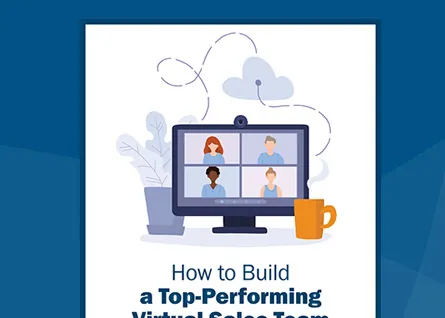How to Ask the Right Questions During Sales Meetings

Sales meetings serve an important purpose in the sales process. Whether you are delivering a presentation to an existing customer or meeting with a prospect for the first time, every sales encounter provides an opportunity to start a meaningful dialogue and build relationships. However, some sales professionals struggle to connect with their buyers and get to the bottom of the problem.
While it’s important to be presentable, well-spoken and well-prepared, asking the RIGHT questions will make all the difference. In fact, your questioning strategy is fundamental to your success.
In this week’s blog we will explain how asking smart questions will affect the direction of your sales conversation and help you develop professional relationships.
Open up the floodgates to your prospect’s thoughts, feelings and concerns
In some of our previous articles, we mentioned the importance of asking probing and open-ended questions during each meeting. We bring it up for one simple reason: savvy questions often reveal unexpected and valuable information the salesperson needs to help their customer.
Your customers may be unaware of the fact that certain details (the details they take for granted) may hold the key to unlocking the best solutions to their problems. Nuances that may surface during your discussion will point you in the right direction and help you delineate the best course of action.
If you listen attentively to your buyers and concentrate on what they are saying, you will gain a solid understanding of your customers’ needs, wants, and predicaments. Only then will you be able to address their challenges head-on.
Here are a few examples of open-ended questions:
- What have you been up to for the past few weeks or months?
- What strategies worked best for you in the past?
- What precludes you from achieving your goals and objectives faster?
- What are some of the biggest challenges you are facing right now?
- Could you describe your ideal situation? What do you think it would take to get to that level?
- Can you pinpoint a few elements of our product/service that you like the most?
- What is the single most important action that may transform your company?
- What would keep you from moving forward?
Decipher your prospects before showing them the way
Asking open-ended questions is a subtle way of getting a sense of your buyer’s personality, figuring out what excites them the most or makes them tick. Ask yourself: what does it take to decode your prospects, read their body language and infer their true intentions, based on the words and expressions they use? Are there any hidden clues that need further interpretation? And what if your customer appears to be tongue-tied and reluctant to speak truthfully about their issues? To break the ice, lead off your discussion with a few straightforward questions. If your prospect starts warming up to you, try to build on your initial rapport and proceed to more challenging and specific questions. It will not only enable you to figure out what they are looking for in a product, but also determine whether they need further explanation or more details.
Get closer to your goals with close-ended questions
If open-ended questions help you get the ball rolling and get the conversation going, close-ended questions can help you drive the deal to completion. Also, close-ended questions help sales professionals control the conversation and keep it from veering off track. After getting all the information you need, exploring every detail and viewing your customer’s situation from different perspectives, ask a few follow-up questions. This is your chance to make sure you are on the same page with your buyer. As the sales meeting draws to a close, a few additional questions will help you clarify certain points, confirm specific data and ensure a thorough understanding of the issues. It’s a nice way to wrap up a stimulating conversation.
Another way to benefit from close-ended questions is to encourage your customer to make a decision (without being too pushy or aggressive). Consider the following examples below:
- What exactly do you mean by that?
- Does it make sense?
- Did I address all your questions or concerns?
- Which option would you like to proceed with?
- Are you aware of the new promotion we are currently running?
Bottomline: Your sales success largely depends on your ability to ask questions. However, asking the right questions is not enough. You also need to listen to the answers. That’s how you are going to establish rapport with your prospects, unearth their biggest concerns and come up with great solutions. In addition, a smart questioning strategy usually shifts the focus from the sales person to the buyer. So, let your customers do most of the talking, enjoy the spotlight and “bask” in your attention, while giving you all the tools and information you need to turn the sales meeting into success.

- Account Planning (11)
- Awards (49)
- Client Testimonial (37)
- Personal Branding (19)
- Podcast (11)
- Research (70)
- Sales Career Development (87)
- Sales Coaching (156)
- Sales Consulting (137)
- Sales Culture (170)
- Sales Enablement (354)
- Sales Leadership (109)
- Sales Management (248)
- Sales Negotiation (16)
- Sales Prospecting (125)
- Sales Role-Playing (18)
- Sales Training (235)
- Selling Strategies (263)
- Soft Skills (70)
- Talent Management (94)
- Trusted Advisor (27)
- Virtual Selling (49)
- Webinar (9)


























